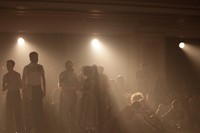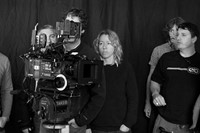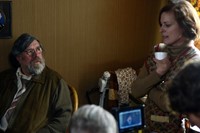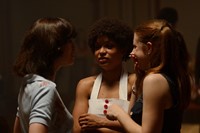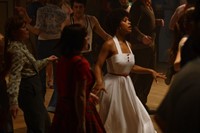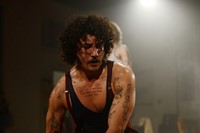In her first feature film, photographer Elaine Constantine revisits the hedonistic heyday of Northern Soul
Northern Soul, a music scene pioneered in the youth clubs and dance halls of northern England in the late 1960s, was always a marginal, underground movement, developed far from the bright lights of London. Obsessively focused on rare soul records produced in America in the mid-1960s – often with a darker sound and faster tempo than the Motown standards of the day – it attracted young people with a taste for the esoteric and rare, for natty fashion, stomping tunes and gravity-defying acrobatics. Photographer Elaine Constantine, who grew up in Bury in Lancashire in the 1970s and became a fashion photographer in the 90s, got into the subculture in her teens and was transfixed. Her feature film, a labour of love that took several years to make and for which she remortgaged her house and cashed in her pension, is an exuberant love-letter to a bygone time, of factory workers and school kids journeying around the country to see their favourite DJs, busting Bruce Lee-inspired moves on the dance floor and scouring record stores for the rarest imports.
"Northern Soul is an exuberant love-letter to a bygone time"
Set in 1974, it tells the story of John and Matt (played by newcomers Josh Whitehouse and Elliot James Langridge), Lancashire kids who fall hard for the sound and decide to become DJs themselves, zealously tracking down elusive 45s, losing themselves in the speed-fuelled all-nighters at Wigan Casino, and planning their trip to soul motherland America. With a stellar supporting cast including Steve Coogan and Lisa Stansfield, the film is a touching and spirited portrait of a special and little known moment in time that inspired subsequent artists like Soft Cell and Steve Strange and later paved the way for House. A rush of online support has garnered the film more screenings across the country, as well as spiking interest in the music. AnOther spoke to Constantine, renowned for her editorial work in The Face and Vogue, about the making of the film and what it was about Northern Soul that got her fired up in the first place.
On her first experience of Northern Soul...
“It was a youth club experience. I went to one called the Town Youth Club, which was at the Town Hall and the secondary schools would descend on this ballroom and it was just rammed. They played charts most of the time. And on this one occasion, I went there and the floor cleared because this old sounding record came on. A few scattered lads came out onto the floor, and they were really going for it, doing the acrobatics and the spins and they just looked really cool. And then I saw the girls at it, and I said to my older cousin, what is this? And she said, it’s northern soul. That was it.”
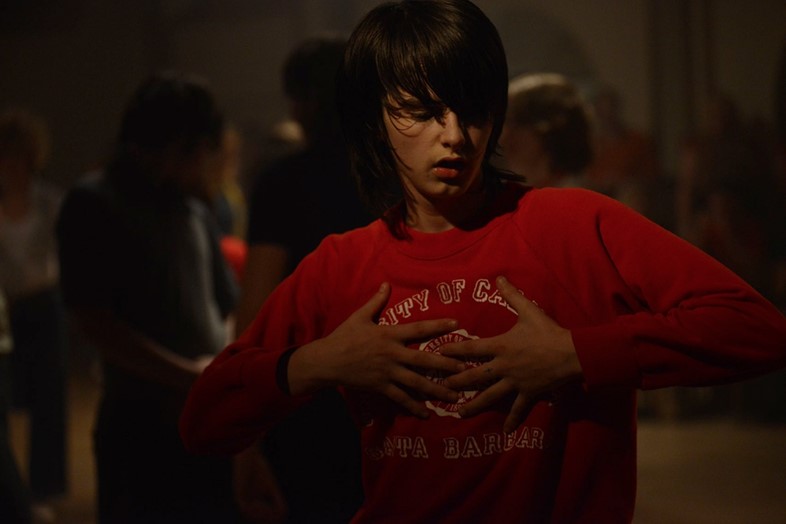
On selecting the soundtrack...
“I asked a DJ that I knew to help me – I didn’t think he would, but he did. He’s quite elusive. Everyone rates him. With these kinds of scenes, you would never dream of asking a DJ to play a record because it’s so intimidating. And he’s one of those people that you’d be terrified of. He’s called Butch – a very elusive character, he doesn’t do interviews, shies away from any kind of publicity. Not interested. He’s still got lots of unknown exclusives. He’s probably got more exclusives than any other DJ in the world and still manages to fill the floor every time.”
On the reaction of Northern Soul die-hards...
“When I first started talking about this film on social media, I had a lot of gatekeepers attacking me. I’d be like that as well as I’m so protective of it. But when they saw us posting our dance club videos on YouTube of young kids getting into it – we were training kids up to dance to populate the scenes – a lot of them just completely switched around and went, “Wow, this young generation’s getting into it, how exciting”. So I don’t think it’s about “This music’s ours, leave it alone”, I think it’s more “Don’t misrepresent us”.”
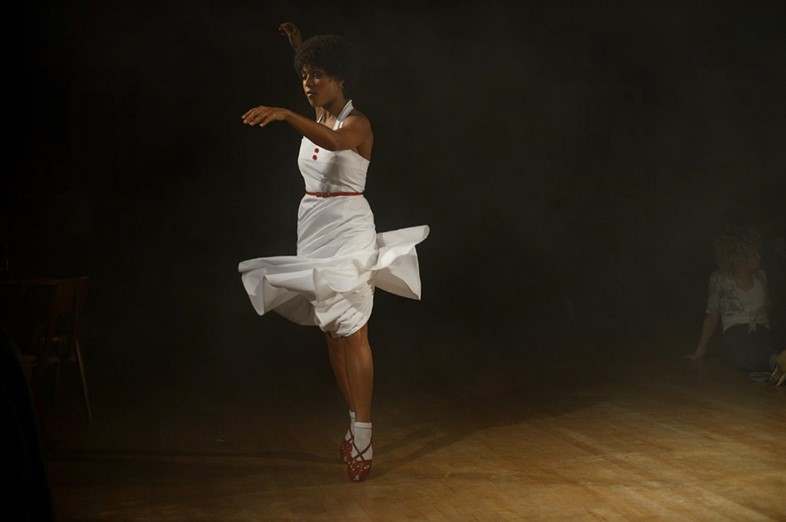
On the actors...
“They were very raw, and they’re not really actors, especially Josh, who’d never acted before. And they wanted that time to prepare. I didn’t know it would be quite that long as I always thought we’d get funded before we did, or at least I hoped we would. I think it’s the best thing I did, because people would say “You’ll never get that back, you want to get Harry Potter and Twilight in there”, but they come with baggage, people like that. Like when you first saw Quadrophenia or when you first saw Scum and you saw Ray Winstone and Phil Daniels, you weren’t thinking “Oh that’s Phil Daniels”, you were thinking “Who’s this kid with his make-up on the train?””
On being a woman on the Nothern Soul scene...
“I didn’t care about the vinyl. I wasn’t collecting vinyl. I liked the social side of it, the dancing, and I loved the music. But at the same time I was quite happy to listen to that music on a crummy tape set. There were a few women who did collect, but I wasn’t one of them. I was into traveling around the country and going to all-nighters and doing that side of it, as with a lot of women and men, but I’m not a collector, and I’m not an aspiring DJ either.”

Characterising the movement...
“Relentless. All-encompassing. Pure passion and drive. Pioneering spirit, determination to get to one end of the country to another to hear one record. Against all odds, strength through the masses, and a kind of drive to find more music. For the people who really took it seriously, they’d push their minds, their wallets and their bodies to unforgiving circumstances.”
On the “three before eight”...
“The records they would play at the end of the night, the three before eight in the morning, were Tobi Legend’s “Time will pass you by”, “Dean Parrish’s “I’m On My Way” and Jimmy Radcliffe’s “Long After Tonight Is All Over”. You’ve got these hundred mile an hour, up-tempo records for maniacs on amphetamines all night, and then, coming down into the morning you’d have these three very mid tempo records that people could identify with as more of a kind of parting record and slowing down a bit. Very emotional.”
Her three definitive Northern Soul tracks...
“It changes, I keep having to refresh myself. It depends on my mood, but I think one I’ll never get tired of is Lou Pride’s “I’m Coming Home in the Morning”, it’s really bluesy and quite hardcore and jazzy and it’s got these massive horn break downs, it’s quite dramatic. And it’s very dirty, and kind of earthy and it can kind of take you up, but it can also take you down. There’s a really amazing record called “I Fell In Love” by a guy called Oscar Wright, it’s quite beautiful. And then there’s another record that has always been a favourite of mine, just because the lyrics are so hardcore. It’s slightly slower than the others, called “I Need You”, by a guy called Johnny McCall. If you listen to the lyrics in modern pub records, and you listen to this song, you go “What was I doing? Why did I bother?”
Northern Soul is in cinemas from October 17, and available on DVD from October 20.
Text by Laura Allsop
